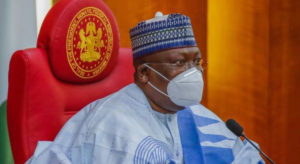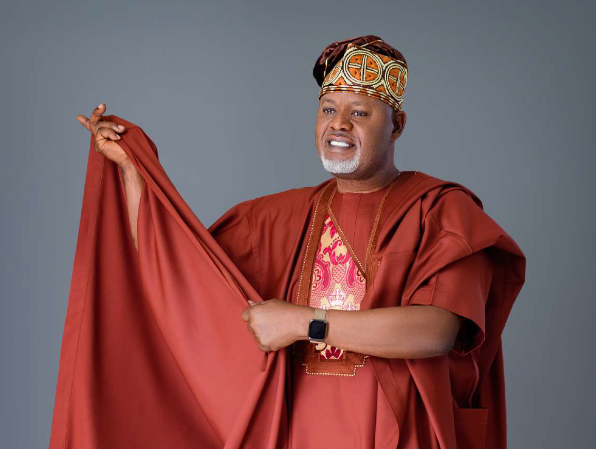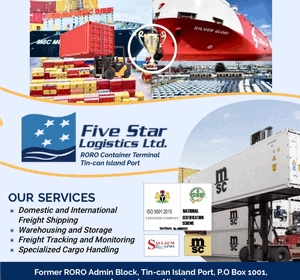As part of activities lined up to celebrate Nigeria’s unique industry personality who deserves to be specially honoured as he clocks 70, Business & Maritime West Africa features a special interview in honour of Engr GREG OGBEIFUN, pioneer President, Shipowners Association of Nigeria (SOAN).
A Shell-trained Marine Engineer and a dogged advocate for the advancement of the maritime industry in Nigeria, Ogbeifun has contributed immensely to the national discourse for the transformation of the maritime and shipping sector. His contributions cut across a variety of topics such as human capacity development, establishment of a national shipping fleet, capacity development of ship owners and shipyard operators, accountability and transparency of industry regulators , etc.
On the industry platform, during this period, Engr. Ogbeifun pioneered the leadership of several organizations including the first Nigerian Maritime Expo (NIMAREX) and the Ship Owners Associatin of Nigeria ((SOAN) which he led as the pioneer President.
His continuous advocacy for the re-establishment of a Nigerian fleet trading globally led to his being appointed a member of the Ministerial Committee for the Establishment of a National Fleet by the Minister of Transportation, Mr. Chibuike Rotimi Amaechi.

Ogbeifun’s penchant for the development of human capacity led him to dedicate his companies – Starzs Investments Company Ltd and Starzs Marine and Engineering Ltd – as a platform for cadetship training for students from the Maritime Academy of Nigeria (MAN), Oron, and other maritime tertiary institutions. Little wonder that he was also appointed into the Ministerial Committee to restructure and reposition the Maritime Academy of Nigeria (MAN), Oron, by Amaechi.
He will remain a non-executive Chairman of the Board of Directors of Starzs Investments Company Ltd. Even in retirement, he plans to continue impacting the maritime and shipping industry through numerous projects that he is privileged to spearhead. These projects include the extensive expansion of the Starzs Marine and Engineering Ltd (Starzs Shipyard) in Onne, Rivers State, as well as the Benin River Port project in Edo State.
How do you feel attaining 70 years in a country with very low life expectancy?
Thank you! I am most excited to be alive and the opportunities God has given me to impact my world positively. 70 is a very special age being the benchmark given by God as the minimum lifespan for man. I feel special to be a beneficiary of God’s promise in this regard.
As a topmost expert, if you were appointed the NIMASA Director General, how will you do things differently?
Being successful in the private sector does not guarantee success in the public sector because while in the private sector, you have a wide latitude of authority to achieve results quickly whereas in the public sector, you are subjected to numerous stringent regulations that can otherwise affect your ability to deliver on your mandate.
Nevertheless, it is possible to leverage on your own management style to overcome some of these challenges.
That said, if appointed as NIMASA DG, my focus will be the revitalization of the Nigerian Ship Registry to international standards. This will mean broader shipping operations furthering indigenous participation in global commercial shipping, improved technical training for ship surveyors, more jobs, investments and importantly too, provide available platform for sea-time training for Nigerian cadets and other seafarers as the Nigerian Registry will determine the manning on the ships flying its Flag.
At the 2015 Commonwealth Business Forum (CBF) in Malta, you led the Ship Owners Association of Nigeria (SOAN) to eloquently market the Nigerian shipping potentials to the global community. Can you pinpoint any dividends this move attracted for Nigeria so far?
Leveraging on that initiative, the Commonwealth Investment & Enterprise Council (CWEIC) has subsequently established a Nigerian branch which is now engaging several business initiatives even beyond maritime.
In what is seen as a massive and fundamental industry move, Starzs Group is currently expanding her Onne Ship Repair Yard. What are you targeting?
In a bid to scale up our shipyard operations, we have developed a proposed expansion plan with a capacity to dry-dock vessels of up to 89 metres in length and a maximum lifting capacity of approximately 7,500 tonnes. It is estimated to create over 1,000 direct and indirect jobs with a capacity to dry-dock over eight vessels simultaneously. This will reduce downtime for vessel owners and improve overall turnaround time for ship repairs. There will be a dedicated berth for new shipbuilding as well as a berth for shipbreaking. The project is already at an advanced stage. This project will be the first of its kind in Nigeria and Africa. It will be a turning point in the ship repair industry.
In contravention of the local content laws of Nigeria, the Nigerian National Petroleum Corporation (NNPC) continues to award crude oil lifting contracts to foreigners, neglecting indigenous ship owners. To what extent can NNPC’s action be justified?
That NNPC awards crude lifting contracts to foreigners while neglecting indigenous ship owners is not correct. Indeed, indigenous participation can be improved upon. I would like to appreciate the efforts NNPC is making in this regard.
In my opinion, the way out of this situation is to make the crude lifting qualification requirements more publicly advertised so that entities who meet the requirements will have the opportunity to be part of the process. I believe that a lot of Nigerians who are feeling disenfranchised from the process may not have even taken time to understand what the requirements are, much less meeting them.
What must Nigeria do to overcome the negative effect of the Covid 19 pandemic on the shipping sector?
First of all, what are these negative effects? Let me enumerate them. Loss of contracts for companies; loss of jobs for people, difficulties for companies to perform their contracts under the strict conditions imposed by the pandemic and increased expenses from compulsory crew quarantines, covid tests, etc.
To mitigate these, government can support the international oil companies (IOCs) to reduce the financial burden resulting from increased expenses. Government can also encourage financial institutions to provide palliatives for ship owners who are defaulting on their obligations due to the pandemic. For example, suspension of loan payment for the period when vessels have no work and incentives for maritime institutions to provide virtual training so that seafarers who are out of work can remain up-to-date with their certifications and personal development can be explored.










